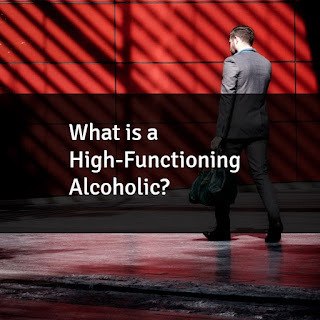
To many people, the image of an alcoholic brings to mind someone who is drunk all the time. This may be a person who is homeless or living in substandard housing, isn’t well-educated and either has difficulty holding a job or does menial work.
Alcohol Use Disorder Statistics
The truth is much more complicated. Alcoholism, or Alcohol Use Disorder (AUD) as it is now known, exists in all socioeconomic groups. It doesn’t respect a person’s age, gender or level of education. The following facts and statistics were provided by the National Institute on Alcohol Abuse and Alcoholism:
- 15.1 million adults in the U.S. aged 18 and over had AUD in 2015
- This figure includes 9.8 million men (8.4 percent of men in the age group) and 5.3 million women (4.2 percent of women in the age group).
- Less than 7 percent of adults with AUD received treatment (7.4 percent of men and 5.4 percent of women).
- Approximately 623,000 youth between the ages of 12-17 (2.5 percent of the age group) had AUD. This figure includes 298,000 young men (2.3 percent of young men in the age group) and 325,000 young women (2.7 percent of young women in the age group).
- Approximately 1 in 5 college students meet the criteria for AUD.
AUD is defined as the inability to stop or control alcohol use in spite of negative health, social or employment-related consequences. AUD can range from mild to severe, depending on the person affected. Recovery from AUD is possible, even in severe cases.
High-Functioning Alcoholics Don’t Fit the Stereotype
Someone who is well-educated, holding down a good job, and carrying on relationships with family members, friends and peers may not seem as though they have much in common with the stereotypical “drunk.” Don’t be fooled by appearances. That person who looks as though they have everything together could be a high-functioning alcoholic.
The person could be performing well in his or her job or running a business. If he or she is doing exceptionally well, others at work may overlook the drinking.
Denial is a Factor. Since a high-functioning alcoholic is appearing to manage really well on the surface, the person is more than likely in denial about the seriousness of his or her drinking. They may think that as long as they are able to work and pay their bills, they don’t have a problem. Some people justify their behavior by saying to themselves that since they “only” drink expensive alcoholic beverages, they can’t be an alcoholic; they want to distance themselves from the “garden-variety” person with a drinking problem.
Signs of a High-Functioning Alcoholic
How would you know that a loved one is a high-functioning alcoholic? Here are some signs to look for:
1. Excessive Interest in and Consumption of Alcohol
A high-functioning alcoholic has drinking on their radar more than the average person. They don’t stop at just one or two drinks when they go out for a social occasion. Instead, they drink heavily at every opportunity, and may even forego eating a meal to drink.
2. Alcohol Use Rarely Causes a Hangover
High-functioning alcoholics get used to having some level of alcohol in their system all of the time, which means they never really “come off” of it. They can go on binges without waking up hung over.
If your loved one starts the day with a drink or is drinking on his or her own, it may be a sign of high-functioning alcoholism.
3. Mood Swings When Alcohol Isn’t Available
Your loved one may become irritable if his or her alcohol supply isn’t readily available. Psychologically, he or she needs to know that there is a steady stream available. If prevented from drinking for a day or two, your loved one will feel depressed and nervous. They start to experience feelings of alcohol withdrawal, such as anxiety, sweating and shaking.
4. Hiding Alcohol in Secret Places
Alcoholics will hide their drink at home, at work or in their vehicle so they can access it easily. They may not want anyone to be aware of how much they are really drinking, so they drink on their own. Some people don’t want to be “caught” with their bottle, since that could mean having to have a confrontation with a family member, friend, supervisor or coworker.
5. Makes up Excuses for Drinking
People with substance abuse problems, including alcohol issues, go through all kinds of mental gymnastics to justify using their drug of choice to themselves and others. In the case of drinking, they may explain that they have to drink because of job stress or because it’s expected in their social group. They may say they need to have “just a little” to lighten their mood or to help them relax or that an older relative use to drink, too, and it “never did them any harm.”
6. Experiences Periods of Memory Loss
If your loved one is drinking to the point where he or she is experiencing blackout episodes, it’s a sign that he or she has developed a serious problem. Memory issues are not something that occurs when someone is using alcohol in moderation (defined as one drink per day for women and two drinks per day for men).
High-functioning alcoholics need professional help. English Mountain Recovery offers customized residential alcohol treatment programs for men and women, tailored to a client’s specific needs.
By Jodee Redmond
Sources:
Alcohol facts and statistics. NIH.
Are you a high functioning alcoholic? WebMD.
9 warning signs someone is a high functioning alcoholic. Power of Positivity.



